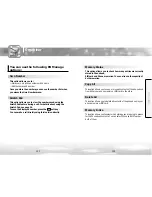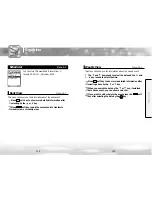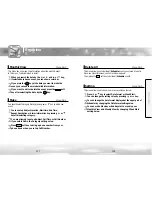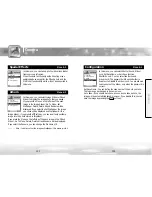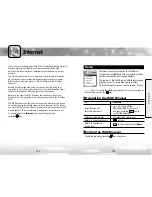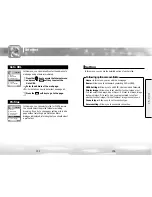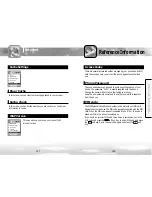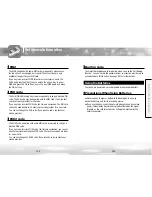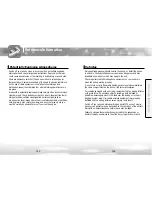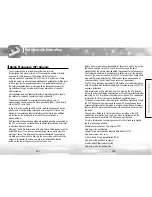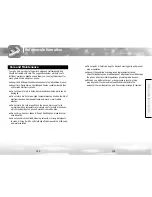
Reference Information
142
Safety Information
Traffic Safety
Do not use a hand-held mobile phone while driving a vehicle. If using a
hand-held phone, park the vehicle before conversing. Always secure the
phone in its holder, do not place the phone on the passenger seat or
where it can break loose in a collision or sudden stop.
The use of an alert device to operate a vehicle’s lights or horn on public
roads is not permitted.
Remember, road safety always comes first!
141
Reference Information
Operating Environment
Remember to follow any special regulations in force in any area and
always switch off your phone whenever it is forbidden to use it, or
when it may cause interference of danger.
When connecting the phone or any accessory to another device, read
its user’s guide for detailed safety instructions. Do not connect
incompatible products.
As with other mobile radio transmitting equipment, users are advised
that for the satisfactory operation of the equipment and for the safety
of personnel, it is recommended that the equipment should only be
used in the normal operating position (held to your ear with the
antenna pointing over your shoulder).
●
Battery charging times depend on the remaining battery charge and
the type of battery and charger used. The battery can be charged and
discharged hundreds of times, but it will gradually wear out. When
the operation time (talk time and standby time) is noticeably shorter
than normal, it is time to buy a new battery.
●
If left unused, a fully charged battery will discharge itself over time.
●
Use only approved batteries and recharge your battery only with
approved chargers. When a charger is not in use, disconnect it from
the power source. Do not leave the battery connected to a charger
for more than a week, since overcharging may shorten its life.
●
Extreme temperatures will affect the charging capacity of your
battery: it may require cooling or warming first.
●
Do not leave the battery in hot or cold places, such as in a car in
summer or winter conditions, as you will reduce the capacity and life-
time of the battery. Always try to keep the battery at room
temperature. A phone with a hot or cold battery may temporarily not
work, even when the battery is fully charged. Li-ion batteries are
particularly affected by temperatures below 0 °C (32 °F).
●
Do not short-circuit the battery. Accidental short circuiting can occur
when a metallic object (coin, clip or pen) causes a direct connection
between the + and - terminals of the battery (metal strips on the
back of the battery), for example when you carry a spare battery in a
pocket or bag. Short-circuiting the terminals may damage the battery
or the object causing the short-circuit.
●
Dispose of used batteries in accordance with local regulations.
Always recycle. Do not dispose of batteries in a fire.
Summary of Contents for GPRS748
Page 1: ......

